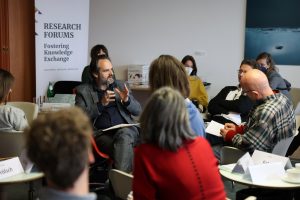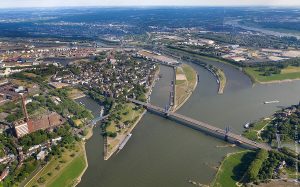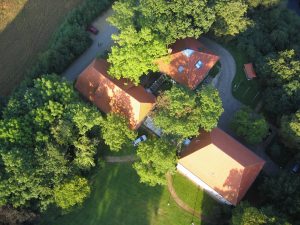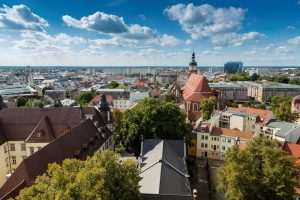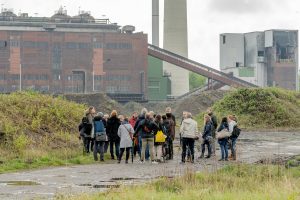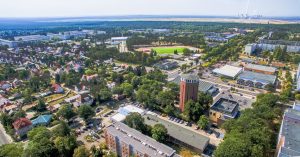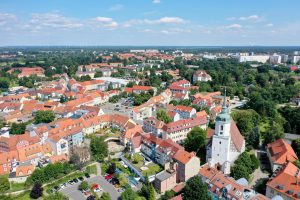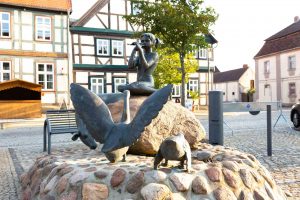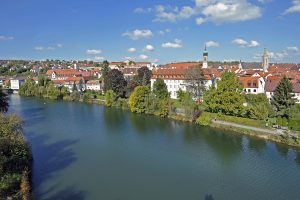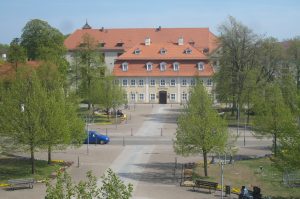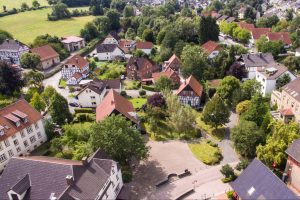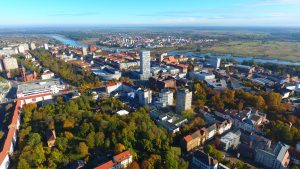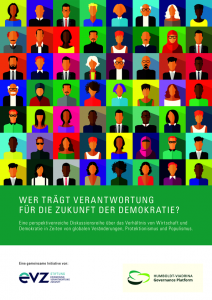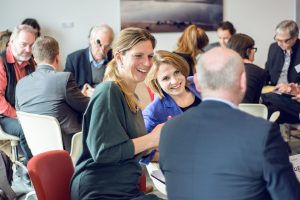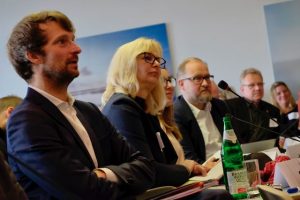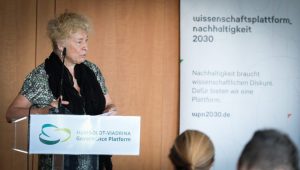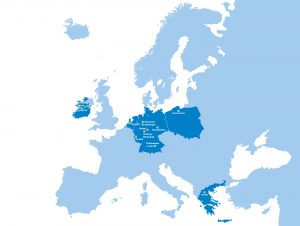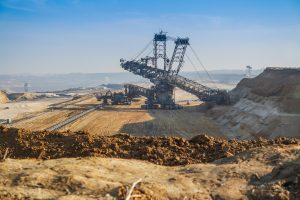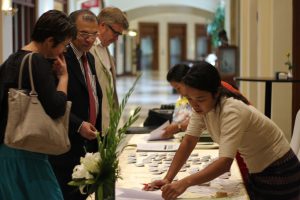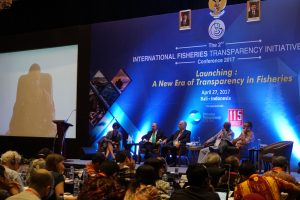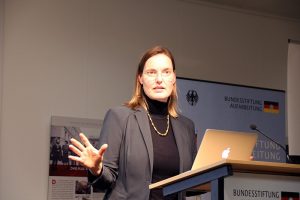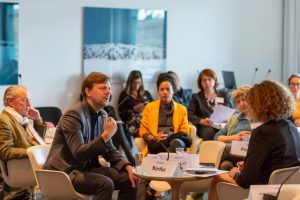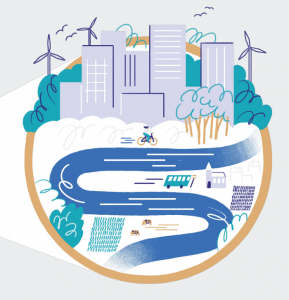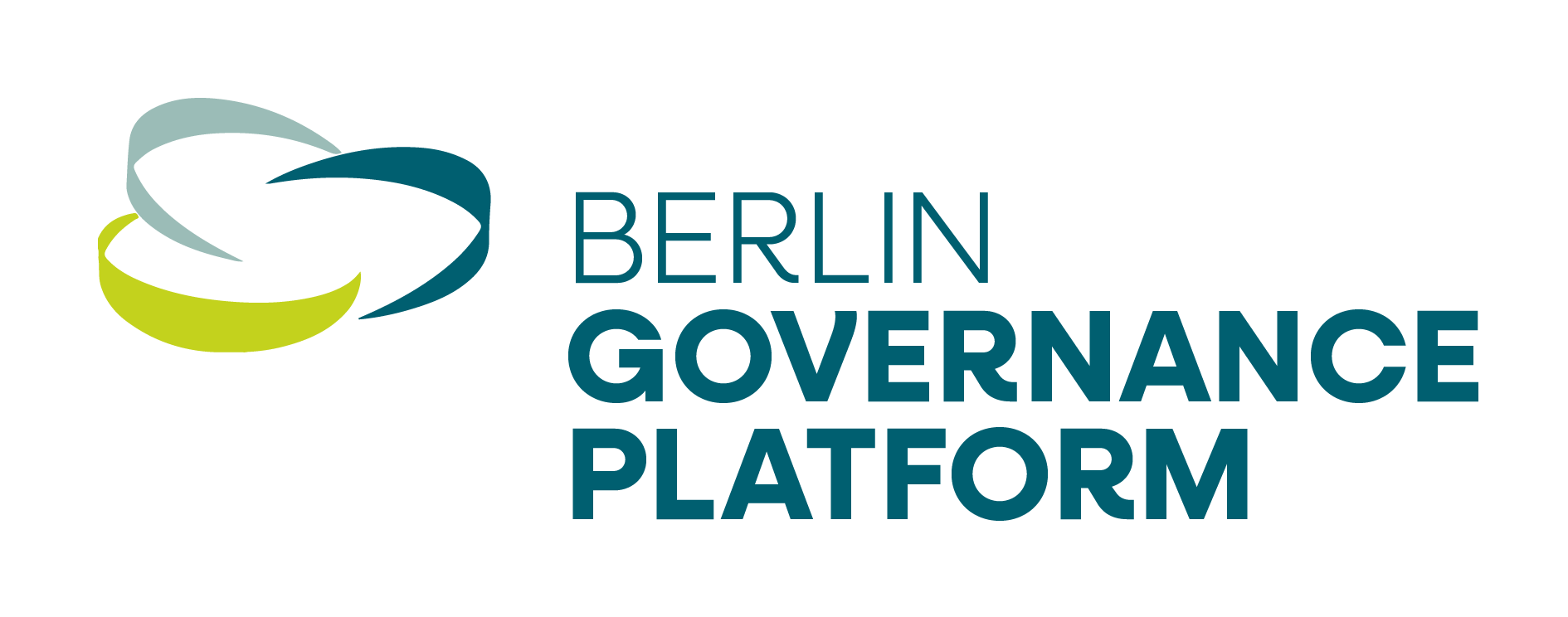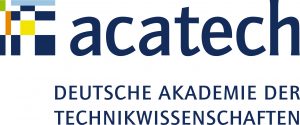With the initiative "Energy Systems of the Future" (ESYS) acatech - National Academy of Science and Engineering, the German National Academy of Sciences Leopoldina and the Union of the German Academies of Sciences and Humanities are providing impetus for the debate on the challenges and opportunities of the energy transition in Germany. In the academy project, around 100 experts from science and research are developing options for action to realise a secure, affordable and sustainable energy supply. The project is led by acatech.
The Berlin Governance Platform, in cooperation with the academy project "Energy Systems of the Future", conducts trials as sounding boards for the working groups of the academy project.
Around 100 experts from science and research are working on analyses and statements on the implementation of a secure, affordable and sustainable energy supply. To ensure that the positions and interests of social stakeholders can be incorporated into the work, the ESYS working groups engage with them in various dialogue formats. One of these dialogue formats was organised by the Berlin Governance Platform in the form of trialogues.
Trialogues are used for intensive, well-founded discussions between experts from an ESYS working group on a specific topic and representatives from politics, business and organised civil society. By linking scientific and social knowledge, a broad basis of knowledge is created. Potential conflict situations between the participating stakeholders are explored and obstacles to discussion and opinions are identified. The results were taken into account in the further work of the working groups and the final analyses and statements.
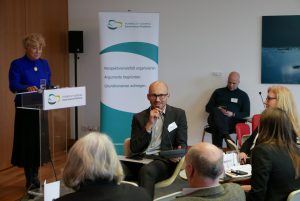
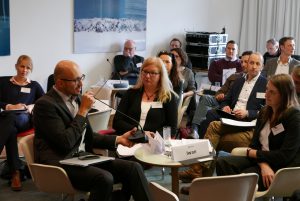
In order to limit global warming to 1.5 degrees, the energy supply must be radically reorganised. There is no question that we need new technologies and effective laws to achieve this. However, we rarely realise how deeply this transformation will affect our everyday lives. If we want to limit the further expansion of photovoltaic and wind power plants, we need to drastically reduce energy use. Among other things, this may mean that driving and flying will no longer be possible to the same extent as they are today. However, the necessary transformation will also bring opportunities, for example to make cities more liveable.
What changes are we most likely to face if climate policy is implemented consistently? How can and must we change our daily lives in order to integrate new technologies and use energy and resources more efficiently? At the trialogue, stakeholders from politics & administration, business, organised civil society, science and the media exchanged views.
The press release on the trialogue can be found here.
You can find the report on the trialogue here.
The share of renewable energies in electricity generation has risen continuously in recent years. In order to balance out the volatile feed-in, large power plants will have to be operated flexibly in future, long-term and short-term storage facilities and new models for more supply-orientated electricity consumption will be required. In addition, CO2-emissions fall. This can be achieved if electricity generated from renewable sources is also used for heating and driving. However, our system is not yet designed for this. The market design needs to be adapted.
How should the market design be organised with incentives for flexible generation and consumption, levies, charges and taxes in order to enable fair competition between the electricity, heating and transport sectors? What role should pricing of CO2-emissions?
Scientists from the "Energy Systems of the Future" project discussed these and other questions with stakeholders from politics and administration, business and organised civil society in a trialogue on 23 October 2018 in Berlin.
You can find the report on the trialogue here.
The energy system is becoming increasingly decentralised in many areas. In addition to the few hundred power plants that used to supply Germany, many small producers have now emerged. Whether photovoltaic roof systems or wind turbines - the producers are mostly cooperatives or private individuals, so-called "prosumers". While some emphasise the new opportunities for participation in this development, others point to the higher costs of a more decentralised energy system.
Experts from the academy project "Energy Systems of the Future" discussed the questions of what our energy system should look like in 2050 and how developments in the energy system should be evaluated in a more decentralised or more centralised direction - in terms of overall costs, acceptance or jobs - together with stakeholders from politics and administration, business and organised civil society at the ninth Trialogue on the Energy Transition. The all-day dialogue event took place on 28 May 2018 at the Allianz Forum Berlin and was organised by the Berlin Governance Platform.
The press release on the trialogue can be found here.
You can find the report on the trialogue here.
Biomass currently contributes more to the energy supply in Germany than all other renewable energies combined and currently supplies both heat and electricity as well as fuels. Many studies indicate that an energy transition without bioenergy would be much more difficult and expensive, as bioenergy can replace fossil fuels. However, this potential contribution to climate protection is offset by considerable risks due to the undesirable side effects of bioenergy utilisation. If sustainability criteria are not taken into account, the cultivation of energy crops causes greenhouse gases, has a negative impact on biodiversity and soil quality and pollutes water bodies.
The contribution that bioenergy can make to the future energy supply in Germany and the role that bioenergy with carbon capture and storage (CCS) should play in climate protection were discussed by experts from the academy project "Energy Systems of the Future" together with stakeholders from politics and administration, business and organised civil society at the Trialogue on the Energy Transition, which was organised by the Humboldt-Viadrina Governance Platform. The all-day dialogue event took place on 23 February 2018 at the Allianz Forum Berlin.
You can find the report on the trialogue here.
The energy system is becoming increasingly networked and digitalised. As well as opportunities, this also harbours risks. How quickly must the digital energy transition be driven forward in order to capitalise on opportunities and prevent risks? How can critical energy infrastructures be reorganised to create a secure and smart energy system? Who should be involved and what new responsibilities will arise?
Experts from the academy project "Energy Systems of the Future" discussed this with stakeholders from politics and administration, business and organised civil society at the Trialogue on the Energy Transition, which was organised by the Humboldt-Viadrina Governance Platform. The all-day dialogue event took place on 14 December 2017 at the Allianz Forum Berlin.
The press release on the trialogue can be found here.
You can find the report on the trialogue here.
With the 2030 Agenda for Sustainable Development and the Paris Climate Agreement, two important international sustainability and climate protection agreements were adopted in 2015. Their core objectives are to limit global warming to well below 2 degrees in the long term and to make the world greenhouse gas-neutral in the second half of this century.
Germany and the European Union have ratified these targets. In order to achieve them, the European energy supply must be restructured jointly. However, conflicts within the European Union and between individual member states can make implementation more difficult, for example if some EU countries continue to rely on fossil fuels in the long term. Does the European Union have sufficient energy policy competences to steer the transformation process and achieve the climate protection targets? Are the instruments and procedures provided for in the "Clean Energy for All Europeans" legislative package ("Winter Package") suitable for this and how can the tasks be distributed appropriately within the EU?
A new working group of the "Energy Systems of the Future" project is investigating these questions. At the trialogue "The governance of the European Energy Union - between national energy strategies and Paris climate targets" on 13 July 2017 at the Allianz Forum in Berlin, ESYS experts discussed these issues with representatives from politics, business and civil society.
You can find the report on the trialogue here.
People want to be mobile in the city, goods need to get from A to B. But the majority of cars and lorries driving in our cities are still responsible for emissions that are harmful to our climate and health. There are a number of options and alternatives for reducing emissions. How will we get around the city in the future? What role will new technologies play in this? And how can we set the course for low-emission urban mobility despite numerous uncertainties?
The decisions we make today will determine how the transport sector will develop in the coming decades. Many paths will be difficult to leave once we have committed ourselves to certain technologies. Inner-city transport is a good example: electric cars and fuel cell vehicles require new infrastructures for electricity and hydrogen respectively. A developed infrastructure of charging points or hydrogen refuelling stations will not be easily exchanged for another, possibly new technology. What strategies can help us make forward-looking decisions in this or similar situations?
The "Path dependencies" working group of the "Energy systems of the future" project discussed this with representatives from politics, business and organised civil society as part of the trialogue.
The press release with the results of the trialogue can be found here.
You can find the report on the trialogue here.
The second phase of the project kicked off with the trialogue on sector coupling, which took place on 11 July 2016. So far, the energy transition is primarily an electricity transition: The share of renewable energies in gross electricity consumption in Germany has already risen to just under 33 per cent in 2015. In the heating and transport sectors, however, the share of renewables in final energy consumption is significantly lower at 13 per cent and 5 per cent respectively. As technologies that can be used on a large scale for CO2-neutral energy generation are most readily available in the electricity sector, electricity will also play a decisive role in the heating and transport sectors in the medium and long term.
Among other things, the trialogue discussed the opportunities offered by coupling the electricity, heating and mobility sectors and where their limits lie. It was also discussed in which areas direct electrification makes sense and where other solutions should be pursued (such as synthetic fuels). It must also be considered whether the increased use of electricity actually reduces CO2 emissions. Another focus was on the political and social contexts that need to be taken into account.
You can find the report on the trialogue here.
The promotion of renewable energies has led to an enormous increase in generation plants. Some of the energy is used directly on site, while some is fed into centrally controlled grids. The interplay between decentralised and centralised elements in the energy system was the topic of the third trialogue "Energy transition = (de)centralised?" held by the HUMBOLDT-VIADRINA Governance Platform and the academy project "Energy Systems of the Future" (ESYS) on 4 December in Berlin.
In the course of the discussion, some definitional inaccuracies were clarified: renewable is not to be equated with decentralised. This is because a spatially focussed expansion of wind farms, such as in the offshore sector, is just as centralised as the construction of a large conventional power plant. Likewise, a decentralised expansion of renewable energies does not automatically mean more citizen participation.
There was a consensus that comparing the terms centralised and decentralised is not very useful. Instead, the implications of certain decisions on factors such as the diversity of stakeholders, the structure of ownership and the need for grid expansion must be analysed specifically in each case. As expected, the stakeholders placed varying degrees of importance on the extent to which stakeholder diversity is necessary for the successful implementation of the energy transition.
In the afternoon workshops, aspects were formulated that should be considered in scientific research on (de)centrality in the energy system: the importance of and requirements for scenarios were discussed and the potential for mobilising citizen involvement was highlighted.
You can find the press release on the event here.
You can find the article "No fear of the energy transition" by one of our participants, Fritz Vorholz (Die ZEIT), here here.
You can find the report on the trialogue here.
The second event as part of the Sounding Boards for ESYS took place on 9 October 2015. In cooperation with acatech and the Resources Working Group, the trialogue addressed the issue of coherent concepts and strategies for raw material extraction, efficient raw material use and raw material recovery in a transformed and sustainable energy system.
Although the expansion of renewable energies is reducing our dependence on fossil fuels, the demand for mineral raw materials is increasing. Platinum, cobalt, gallium, rare earths and many other "technology metals" are essential for wind turbines, solar systems, storage batteries and energy-saving lighting systems. Copper, on the other hand, is needed to extend power lines. On the one hand, this is linked to aspects of global dependency and social and ecological standards in the raw materials sector, and on the other hand to questions about successful recycling strategies.
The importance of raw material supply and recycling for the energy transition, political, social and ecological challenges in this context as well as necessary framework conditions such as a European raw materials strategy were discussed in the trialogue with participants from politics, business, organised civil society, science and the media.
You can find the press release on the event here.
You can find the report on the trialogue here.
The first trialogue took place on 5 May 2015 in Berlin and dealt with a current topic from the "Society" working group. The focus was on the following question: To what extent can nudging contribute to the success of the energy transition?
Until now, policy has mainly relied on hard instruments such as regulations, financial incentives or bans. In contrast, nudging adds a soft approach to the political toolbox. By gently "nudging" citizens, they can be encouraged to behave in a certain way without taking away their freedom of choice. The US and British governments are already using nudging as a state instrument to encourage citizens to save energy, for example through neighbourhood comparison studies.
We discussed with our participants from politics, business, organised civil society, science and the media which design approaches and possible solutions nudges offer in order to effectively support the energy transition. Further questions of the discussion were: What criteria need to be established for a "good architecture of choice"? What framework conditions are necessary when nudging is used as a state instrument?
You can find the report on the trialogue here.

